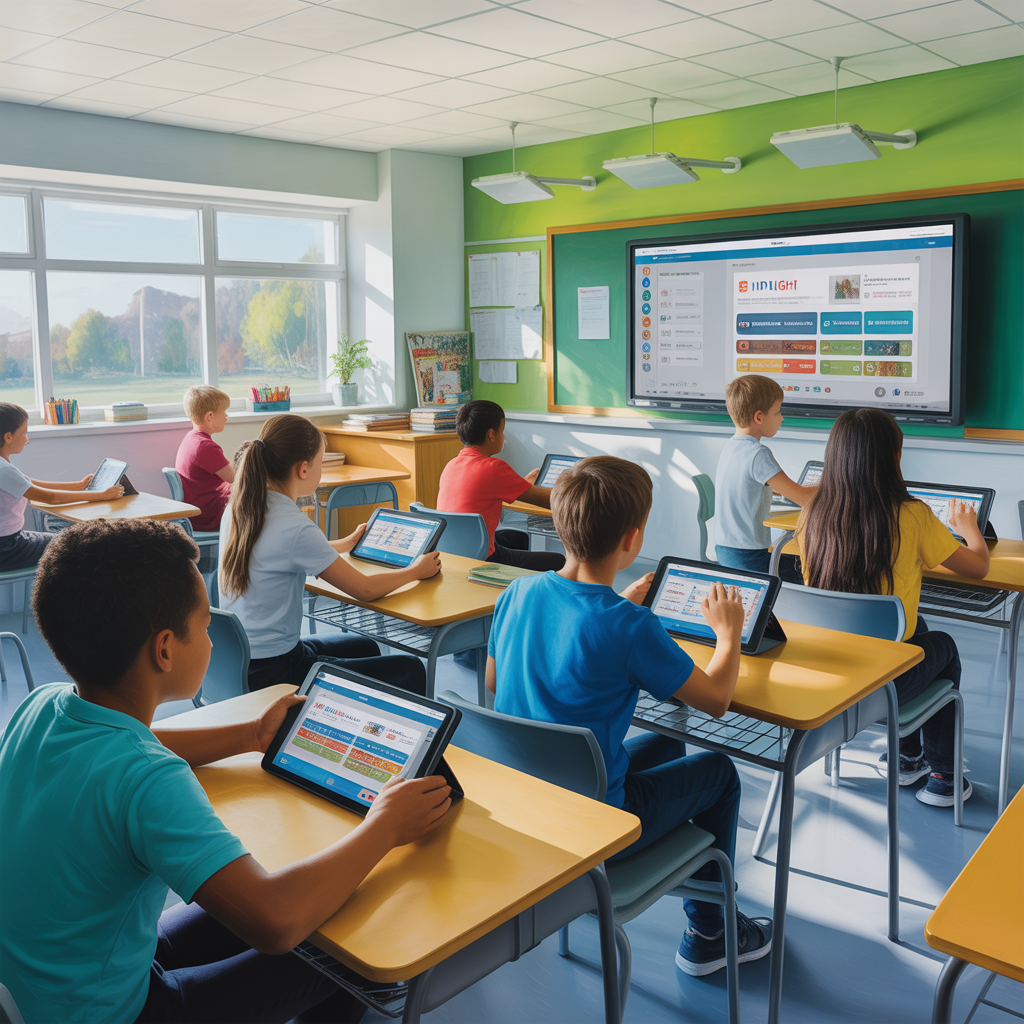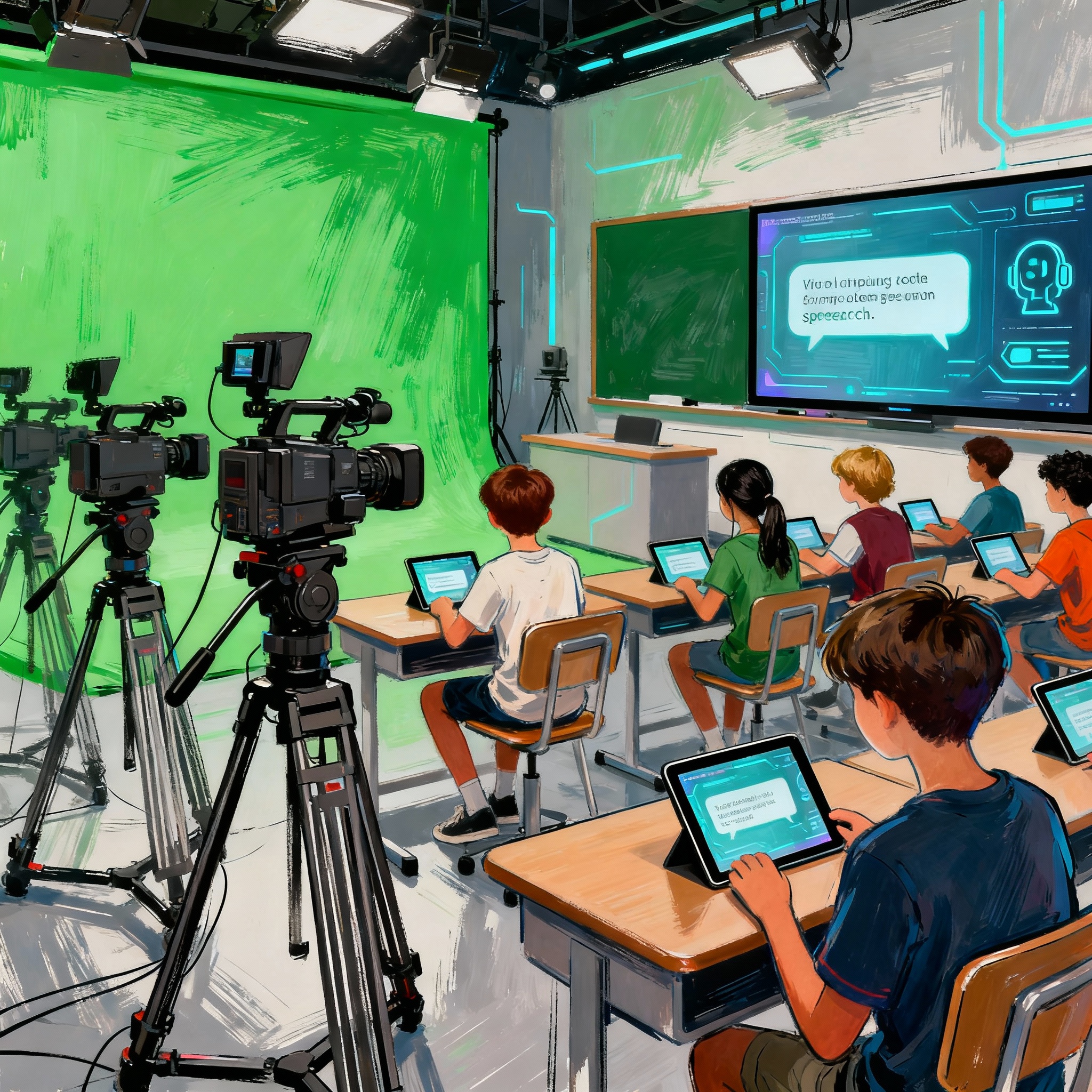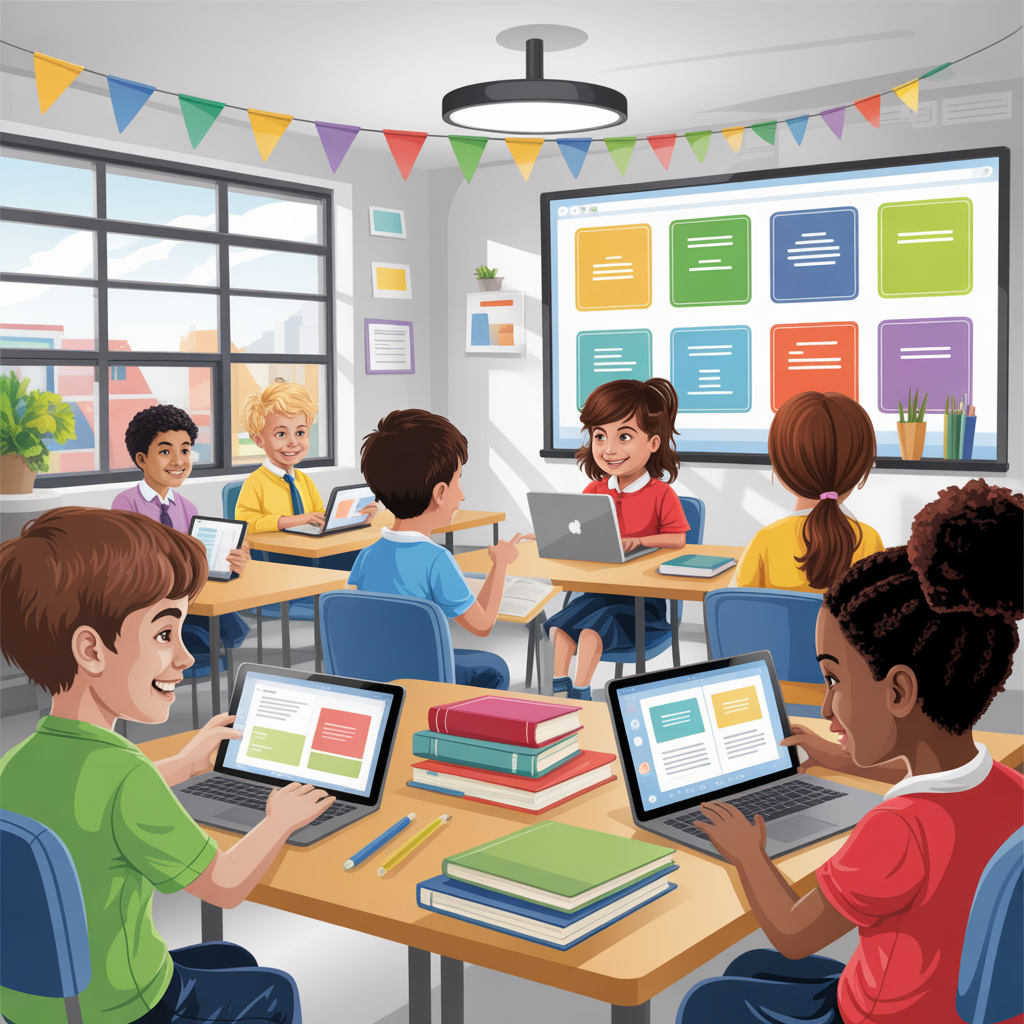GEC's Comprehensive Educational Platform
GEC provides kindergarten thru adult programs based on CEFR standards and American curriculum, featuring multimedia lessons integrated with a 160,000+ vocabulary library. AI tools support study management and essay writing via text/audio interaction with customizable languages.

Foundations: Kindergarten Through Grade 6 Programs
GEC offers engaging alphabet, phonics, vocabulary, and functional language courses for Kindergarten through Grade 6, building a strong foundation in English for future academic success. Lessons include animated videos, song videos, and colorful PDF materials to support and reinforce learning.

Pathways to Academic Success: Middle School Through High School
GEC offers comprehensive programs for middle and high school students, including In Flight and In Orbit language courses, adaptive American curriculum lessons, and CEFR-aligned grammar supported by engaging videos. We also provide a U.S. Dual Diploma Program and personalized academic counseling to help families define their educational path and reach their goals.

University and Adult Learning Programs
GEC offers advanced placement opportunities and university-level research programs supported by our AI-powered Research Assistant, which provides access to thousands of academic standards and helps students strengthen their essay writing and speaking skills. In addition, our adult learning program features a comprehensive business communication curriculum designed to enhance professional effectiveness

Interactive Video Lessons:
GEC’s video production studio creates engaging lessons for learners of all ages, helping students strengthen their conversation and comprehension skills while also developing their writing, pronunciation, and open-ended speaking abilities.

GEC Immersive Travel Program:
GEC’s Travel Program offers a structured study abroad experience that supports second language learning in an immersive, native-speaking environment. The program includes customized preparatory, on-site, and post-trip lessons tailored to each destination, all supported by GEC’s online platform to maximize students’ linguistic and cultural growth.

Comprehensive Language Testing
GEC delivers adaptive, AI-powered assessments that accurately determine true English proficiency across reading, listening, speaking, and writing for placement, progress, and exit evaluations, supported by extensive test preparation question banks.

AI-Powered Content Transformation
Through seamless integration between Data Block and GEC, we deliver powerful AI-driven services for dynamic lesson generation and personalized learning. Schools can convert analog materials into high-quality digital assets and leverage customized AI solutions tailored to their programs, enhancing both instructional efficiency and student engagement.
